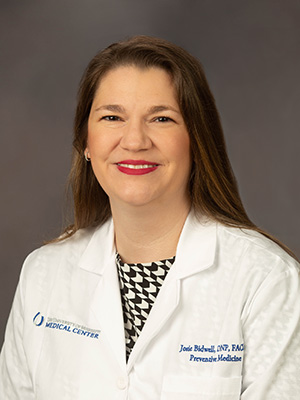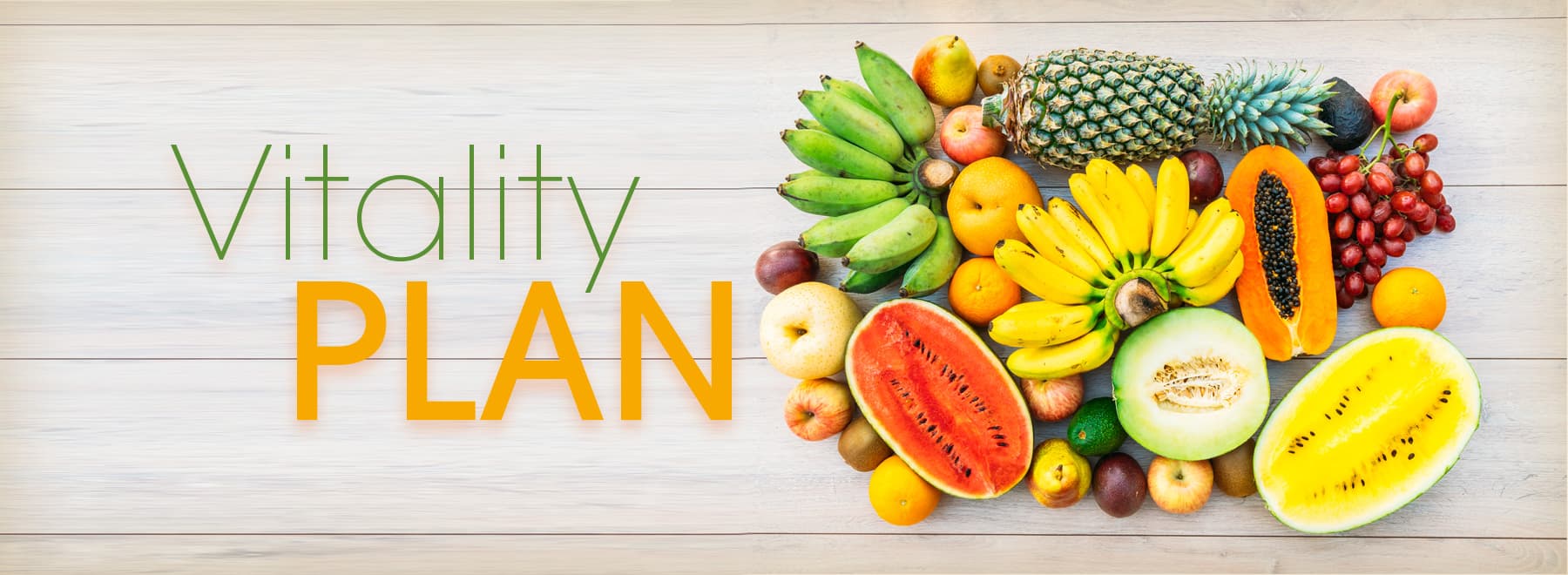How to jump-start your day toward a happier, healthier life
Wake up and smell the grapefruit.
That is the extremely concentrated advice, more or less, from two experts at the University of Mississippi Medical Center who provide tips on the best way to jump-start your day for the sake of good health.
Fresh fruit – oranges, apples, strawberries, grapefruit, etc. – for instance, is a much better choice for your breakfast menu than many foods lurking in the typical American diet, they say.
Among the latter, of course, is the dynamic duo of bacon and eggs, a culinary Batman and Robin.

“But we don’t need the whole barnyard on our plates,” said Dr. Josie Bidwell, associate professor and clinical director of preventive medicine at UMMC. “Bacon is very highly processed – chock-full of sodium and other preservatives. There is really no amount of processed meat that can be recommended for good health. It’s linked to heart problems and other issues.
“For protein, you could substitute a nut butter or low-fat yogurt. But everybody knows that people are still probably going to eat bacon. So, think about what you’re combining it with. We need to have less saturated fat and cholesterol in our diets, and more fiber, which only lives in plant food.
“But if you’re going to eat bacon and eggs anyway, eat bacon with no eggs, or eggs with no bacon.
“First and foremost, though: Eat real food. That’s fruits and vegetables and grains. They come with fiber, which fills us up longer and helps us maintain a healthy blood sugar. They do have naturally occurring sugars, but what we want to avoid is added sugar.”
That means, for one thing, muffins.
“They often have white flour and refined sugar,” Bidwell said. “Even if a muffin has fruit in it, the amount of added sugar is going to cancel out the fruit’s health benefits. You would be better off with a bowl of oatmeal and some blueberries.”

The consequences of a breakfast, or any meal high in sugar, salt, cholesterol and fat, are not pretty, said Dr. Kimberly Bibb, UMMC assistant professor of family medicine, whose services include adult medical weight management.
“It can lead to high blood pressure, high cholesterol and even obesity,” said Bibb, who is board-certified in obesity medicine. When her patients ask what a low-sugar, low-sodium and highly nutritional diet means, she’s ready with answers.
“Vegetables and fruit smoothies, for one,” she said. “You can even add protein powder, add natural sweeteners such as Stevia or honey, instead of sugar. Or drink a protein shake.
“As for children, they often eat a lot of high-sugar cereal. Choose instead cereal with a low sugar content and add a side of fruit, a boiled egg and low-fat dairy.”
Bibb, like Bidwell, acknowledges the universality of bacon.
“If you choose to have regular bacon every now and then,” she said, “consider a healthier option, such as low-sodium turkey bacon or turkey sausage.”
Neither are all yogurts created equal.
“Instead of regular yogurt,” Bibb said, “choose plain, low-fat yogurt and add fresh fruit.”
“Fruit” does not mean “fruit juice.”
“When we juice fruit, we get rid of all the fiber,” Bidwell said. “If weight loss is our goal, it’s not a good option.
“For instance, apple juice has 130 to 150 calories per serving. An apple has 50 to 70 calories, about one-half of that for the juice.
“You can drink the juice down in a minute and still feel hungry. It would take you 10 minutes to eat those two apples and you would feel much fuller.”
So what should your drink of choice be, or not be, for breakfast? Let’s start with coffee, as many people do.
“Try to avoid excessive amounts of caffeine in general, whether it’s in coffee or tea,” Bibb said. “Typically, probably no more than one cup per day.
“The caffeine in regular coffee can have some adverse effects overall.”
Coffee is not always the issue, Bidwell said.
“It’s what we put in it. Are we adding sugar? Are we adding heavy cream or half-and-half, or artificial cream, all of which have added sugar? None is a healthy option.”
But water is.
“None of us drink enough water,” Bidwell said. “So starting your day with hydration is not a bad idea – especially if you are not going to have a lot of opportunities to drink water throughout the day, which has been the case even more often during the pandemic.
“Now we wear masks when we’re around other people, and so we don’t drink as much in front of them.”
Near her refrigerator, Bidwell said, she keeps a cup that holds the equivalent of two glasses of water.
“I drink that every morning while I’m waiting on my coffee to brew. So I’ve given my body some hydration in the mornings in case I don’t have the chance to get it later in the day.”
But people do not live healthily by water and non-processed foods alone. A good sweat and a good night’s rest also add up to a good disposition.
“The best time of day to exercise is any time somebody will do it,” Bidwell said. “We have such an issue with physical activity, we don’t need to get bogged down about whether we may burn a few more calories if we do it a certain time of day.”
And you don’t necessarily need a gym, Bibb said.
“It could mean parking farther from your workplace and walking a longer distance. It could mean taking the stairs instead of an elevator.
“Whatever you do, making sure you schedule that time is important. Plan your exercise and put it on your calendar, just like any other appointment.”
You should also make an appointment with your bed, Bidwell said.
“Sleep is the foundation of a healthy lifestyle, having the appropriate quantity and quality. The sweet spot for sleep is seven to nine hours.
“As for the quality: You should feel refreshed when you wake up. If not, something is going on. Are you getting up multiple times in the night? Is your TV on in the bedroom? Are you snoring, and do you have sleep apnea that hasn’t been diagnosed or treated?
“For good sleep, you need a comfortable temperature in the room: 68 to 72 degrees. You need darkness, so turn off the TV and your phone about an hour before you go to bed.
“Your bedroom should be quiet and calming, not full of clutter or noise. And let your body know that it’s getting to be bedtime. I recommend that, as the sun sets, start using dimmers. Or use more lamps and accent light. That’s how our brain knows that the day is coming to an end.
“If the sun is down, it’s time for us to start winding down.”
Having a plan is vital for vitality, Bidwell said.
“Nothing that we have accomplished in life usually has happened without a plan to get there. That’s true, whether it’s making changes in your diet, your exercise routine or how you sleep.”
For a more detailed reference, Bibb and Bidwell recommend the Southern Remedy Healthy Living Program.
The above article appears in CONSULT, UMMC’s monthly e-newsletter sharing news about cutting-edge clinical and health science education advances and innovative biomedical research at the Medical Center and giving you tips and suggestions on how you and the people you love can live a healthier life. Click here and enter your email address to receive CONSULT free of charge. You may cancel at any time.



